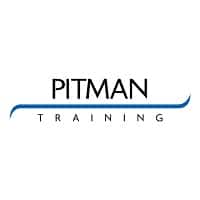Course Description
Diploma in Everyday Budgeting
Global Edulink
Overview:
Are you having difficulties with budgeting? Do you want to take back control of your finances? Have you had effective education on how to make your money last?
It can be very challenging to budget your own money, which sometimes can lead to problems. We tend to overspend because we do not know how to handle our finances and it can be difficult to achieve financial stability. This is such a common problem, which is why Global Edulink have created this Diploma in Everyday Budgeting course, which will empower you to achieve financial stability and success.
It is a lot simpler than you might think, the key to financial stability is understanding how to organise your expenses, being able to establish a budget, and having strategies in place to ensure you stick to your budget. With some simple changes you can turn your finances around, and our expert course instructors are here to help you get it right.
This course aims to help individuals who are having a difficult time budgeting to successfully control their money and limit spending on unnecessary items. In this course, you will learn how to set goals, create your own budget effectively, overcome debts and overspending, and also acquire strategies that will help in making long-term budgeting effective and successful.
Learning with Global Edulink has many advantages. The course material is delivered straight to you, and can be adapted to fit in with your lifestyle. It is created by experts within the industry, meaning you are receiving accurate information, which is up-to-date and easy to understand.
This course is comprised of professionally narrated e-Learning modules, interactive quizzes, tests and exams. All delivered through a system that you will have access to 24 hours a day, 7 days a week for 365 days (12 months). An effective support service and study materials will build your confidence to secure your qualification.
Course Objectives:
Understand how to plan and implement a realistic budget
Learn how to understand how much you are spending
Understand the process of financial self-assessment
Explore and understand how to stick to your budget
Who is this course aimed at?
This course is ideally suited to anyone who needs that little bit of extra help with their finances, whether you’re a small business owner, or you simply need help with your personal budgetary control. If you are interested in working in the finance industry, this course could contribute towards your financial education.
Course Benefits:
Free examination and official e-certificate
Gain an accredited UK qualification
Access to excellent quality video tutorials
Learners will be eligible for an NUS Discount Card
Excellent tutor support Monday-Friday
One year’s access to the course
Support by phone, live chat, and email
Join a friendly online learning platform
Course Units:
Module 01: Learning How to Budget
Module 02: Learning to save
Module 03: Understanding Where Your Money Goes
Module 04: The Self: Assessment
Module 05: Creating the Budget
Module 06: Organising budget: tools and resources
Module 07: Strategies for Sticking to Your Budget
Course Description:
This online training course is comprehensive and designed to cover the topics listed under the curriculum.
Course Access Duration:
This course is delivered through a system that you will have access to 24 hours a day, 7 days a week for 365 days (12 months). As this is an online course, you have no set timetable and can study at your own pace. Move through the modules as fast or slow as you wish, and return to previous sections at any point.
Method of Assessment:
At the end of the course learners will also take an online multiple choice questions assessment test. This online multiple choice questions test is marked automatically so you will receive an instant grade and know whether you have passed the course.
Certification:
Successful learners will be awarded a Diploma in Everyday Budgeting.
Entry Requirements:
Learners should be age 16 or over, and must have a basic understanding of Maths, English, and ICT.
Progression and Career Path:
What job can I get with this diploma?
Finance Assistant (average UK yearly salary: £18,985)
Typical duties include:
Process financial forms
Perform calculations
Oversee individual accounts
Create, send, and chase invoices
Review budgetary control
Process financial spreadsheets
What other jobs can I get with this diploma?
Accounts Assistant (average UK yearly salary: £18,602)
Financial Controller (average UK yearly salary: £46,614)
Assistant Accountant (average UK yearly salary: £22,339)
Account Executive (average UK yearly salary: £22,064)
Course Curriculum
1: Learning How To Budget
2: Learning To Save
3: Understanding Where Your Money Goes
Understanding Where Your Money Goes
4: The Self- Assessment
5: Creating The Budget
Creating the Budget
6: Organising Budget-Tools And Resources
Organising budget-tools and resources
7: Strategies For Sticking To Your Budget
| Course Code | GEL079 |
| College Name | Global Edulink |
| Course Category | Accountancy, Business |
| Course Type | Online Learning |
| Course Qualification | CPD |
| Course Location | Dublin, UK |
| Course Start Date | 9th January 2019 |
| Course End Date | 31st December 2019 |
| Course Fee | 55 |
| Course Duration | 365 |
| Entry Requirements | Learners should be age 16 or over, and must have a basic understanding of Maths, English, and ICT. |
| Career Path | What job can I get with this diploma? Finance Assistant (average UK yearly salary: £18,985) Typical duties include: Process financial forms Perform calculations Oversee individual accounts Create, send, and chase invoices Review budgetary control Process financial spreadsheets What other jobs can I get with this diploma? Accounts Assistant (average UK yearly salary: £18,602) Financial Controller (average UK yearly salary: £46,614) Assistant Accountant (average UK yearly salary: £22,339) Account Executive (average UK yearly salary: £22,064) |





Comments, Questions & Reviews